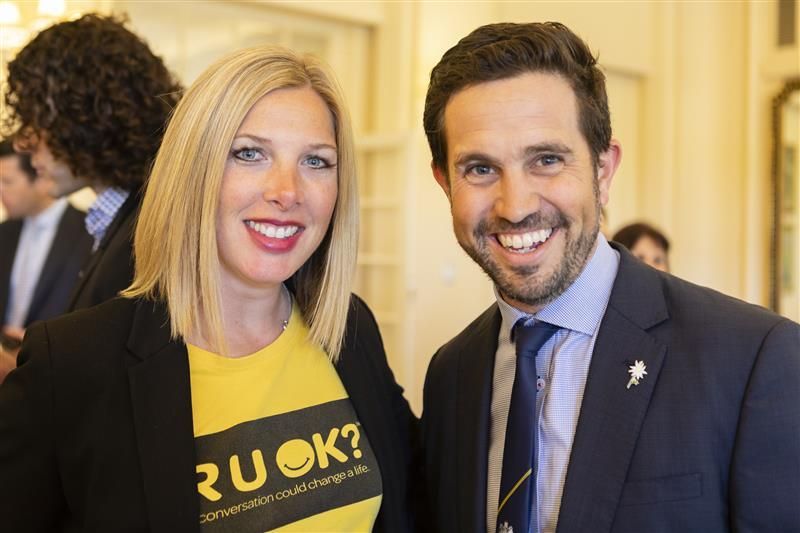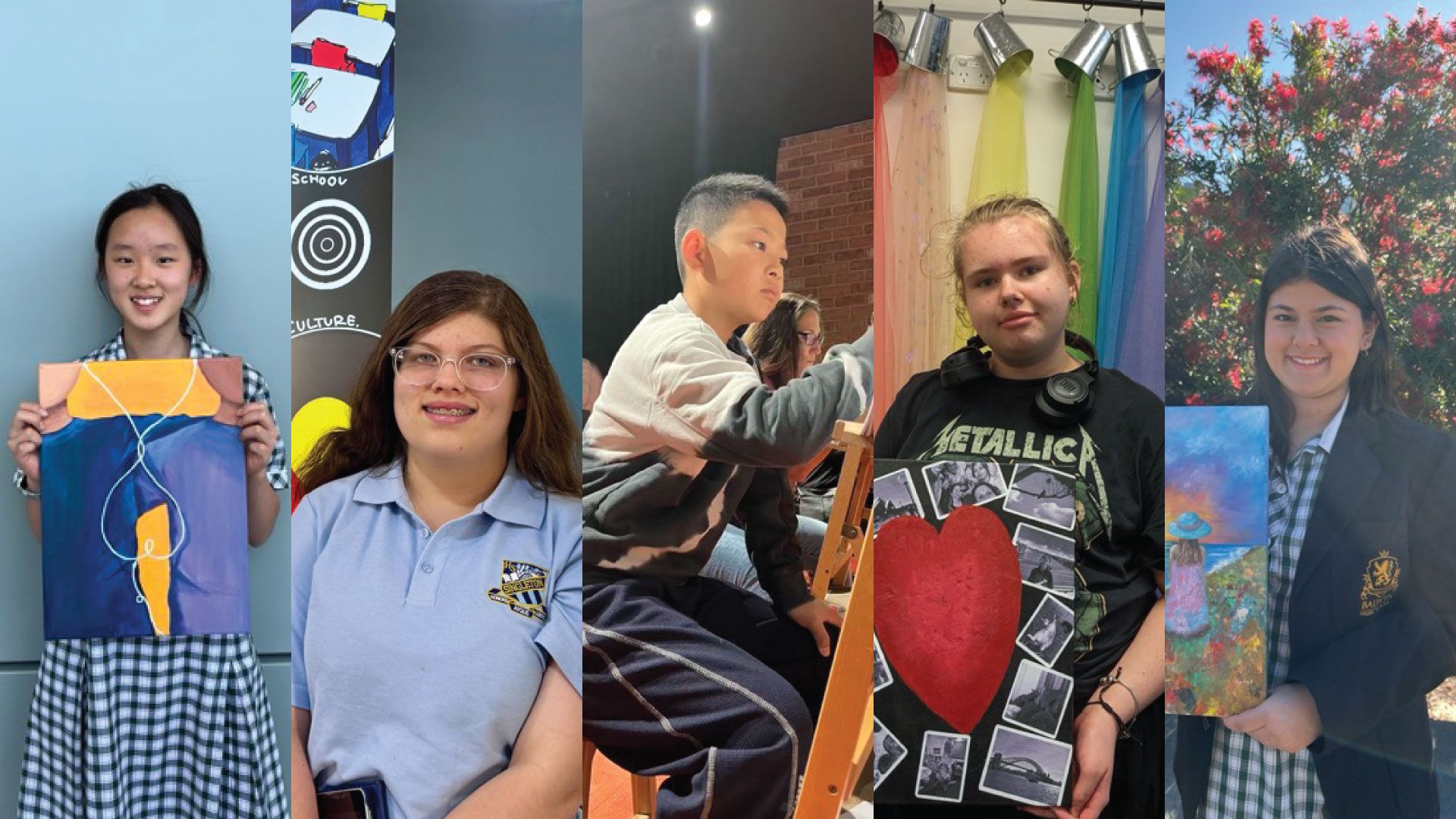How to look out for your colleagues these holidays
For a lot of people, the end of year can be a stressful and difficult time. Some are scrambling to meet deadlines, while others who might be working through the festive season face their busiest period of the year. We chatted with R U OK? Ambassador, Rachel Clements, the Director of Psychological Services at Centre for Corporate Health, who shared her thoughts on how to best support colleagues during the holiday season.

What are some of the challenges people in workplaces face at this time of year?
Usually at this time of year we are seeing high levels of exhaustion and depletion. Now that we are getting to the pointy end of the year, there’s a mad rush to get everything done at work, personal demands are heightened and financial stress increases.
Some people still can’t travel to connect with friends and loved ones, while for others, this time of year brings reminders of grief or loss. Remembering someone that may have passed at this time of the year or having the first Christmas without someone dear can mean this is a time of great sadness. Some people will feel isolated and lonely over the festive period, and for others, family pressures and tensions can bubble to the surface.
Who in particular should we be looking out for?
We should all be challenging ourselves to have a level of awareness about which of our colleagues may be doing it tough. Is there someone who has family that they haven’t been able to see for some time? Do I know someone who has experienced a natural disaster this year? Is one of my colleagues experiencing grief or loss? Do I know someone who’s lost their job or is going through financial hardship?
Instead of relying on other people to stay connected this Christmas, we urge you to take a different approach. Think about who you haven’t heard from in a while or who might be doing it tough, and make an effort to connect with them.
How can we best support someone at work who might be finding things tough?
The easiest thing you can do is stay close and check-in. Ask someone what their plans are for the holidays. If they indicate they will be spending long periods of time alone, suggest catching up with them, in person, online or over the phone. If you’re worried about them, encourage them to speak with a support service or their doctor. If your organisation has an Employee Assistance Program, that could be a great place for them to start.
You can also encourage people to develop a wellbeing plan that includes activities they enjoy. We often see people stop work and do nothing because they’ve lost that weekly routine. They then come back to work feeling even worse. Wellbeing activities might include exercise, connecting with friends, eating well and limiting alcohol intake or ensuring they’re getting adequate sleep.
How can we check in with colleagues without feeling we are prying?
If you are genuine and check-in with the right intention, a person can feel incredibly supported, knowing someone cares about them and has their back. As we know from the R U OK? research, people who talk about what’s troubling them often feel more supported, connected and better about themselves and their situation.
You don’t have to put pressure on yourself to solve someone’s problem, and it might not be your place to invite them over to Christmas dinner. But what you can do is be the bridge to connect someone to the next steps. That might be professional support, or perhaps there’s another workmate you can tap on the shoulder and say, “Hey, I’m really worried about this person, can you have a chat with them?”.
What can employers and business leaders do to ensure they are looking after their staff at this time of year?
I’d say really get to know your team and think about who might need some extra support. Encourage people to plan for their holidays and stay connected with others to stop little problems from becoming big ones. Employers can also consider the urgent priorities for staff and what can wait until next year because we want our teams to finish the year with their wellbeing intact and not running on empty. Other ideas might be to give staff small recovery breaks during the day or organise social events to finish the year on a positive note.
How can we support friends, family and colleagues that are working through Christmas?
People working at this time of year are often really overloaded. They’ve got their job, Christmas shopping and a full social calendar. It’s important we encourage them to make time for themselves to recharge their batteries. Give them the opportunity to say no to some social events and encourage them to keep up their wellbeing activities – it may be connecting with a friend, exercising, going to the beach or ensuring they are getting enough sleep. The holiday period is a marathon, but people tend to treat it like a sprint. So, when you check-in with someone, remind them to press pause if they need to.
Five ways to support someone over the holiday period.
- Be aware of the people around you and check in with someone who might be finding things tough – are they unable to visit their family, experiencing grief or under strain financially?
- Encourage people to form a plan for the holidays. Doing things they enjoy and making time for themselves can ensure they return to work refreshed.
- Don’t feel guilty about putting your oxygen mask on first. Look after yourself and maintain your wellbeing strategies. When you put your oxygen mask on first, you’ll be in a much better space to support others.
- Stay connected and check-in. Whether it’s in-person, online or on the phone, it’s something we can all do.
- Be mindful of those who are still working and encourage them to press pause if they need to so they can recharge their batteries.





















